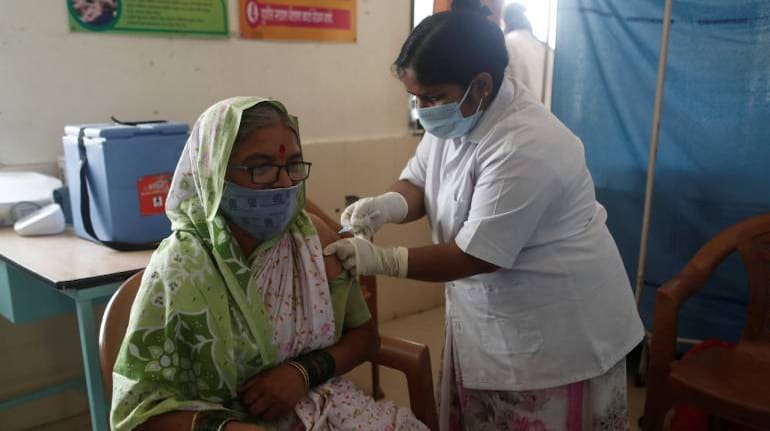



India reported a record 115,736 new COVID-19 cases on Wednesday, a 13-fold increase in just over two months, raising pressure on the government to expand its vaccination campaign.
Some states, including hardest-hit Maharashtra and Odisha, have complained of a scarcity of vaccines during a second wave that has forced some centres to turn away people.
Only those aged over 45 are being immunised.
"Vaccination centres have to close early due to a shortage of supplies," the western state's health minister, Rajesh Tope, told reporters, adding that stocks would run out in three days after the daily injection of over 450,000 doses.
Also read: Health minister Harsh Vardhan blasts ‘some state governments’ for vaccination failures
India's health minister said the complaints, mostly from states not ruled by Prime Minister Narendra Modi's party, were attempts to cover up their failures and spread panic.
"Vaccine supplies are being monitored on a real-time basis, and state governments are being apprised regularly about it," Harsh Vardhan said in a statement.
"Allegations of vaccine shortage are utterly baseless.
To requests from states to widen the immunisation drive to include more adults, he said: "So long as the supply of vaccines remains limited, there is no option but to prioritise."
Maharashtra has for weeks accounted for over half India's daily new cases, which on Monday passed 100,000 for the first time. The government blames the resurgence mainly on crowding and a reluctance to wear masks as shops and offices reopen.
Maharashtra has urged the government to expand vaccinations to younger people and to divert medical oxygen from other regions, Tope said.
Maharashtra, Delhi, Punjab and Karnataka states have in recent days imposed new curbs, including night curfews in some places.
The federal government has refused to impose any national lockdown. The previous one last year devastated the economy and left millions penniless.
'NO SCOPE FOR COMPLACENCY'
India has recorded 12.8 million cases, the third worst-hit country after the United States and Brazil.
Deaths from COVID-19 rose by 630 – the most in four days – to 166,177, according to new health ministry data.
Daily infections have also passed last September's peak.
Many states have criticised the government as India, the world's biggest vaccine maker, has restricted its immunisation drive to some 400 million of its 1.35 billion people.
It has so far administered 86 million doses, 90% of those the AstraZeneca shot made by the Serum Institute of India. The rest have come from Indian company Bharat Biotech, which has struggled to boost output of its homegrown shot.
Both vaccines require two doses. More than 75 million people in India have received at least one dose. Only the United States and China have administered more doses.
With the contagion accelerating, India is racing to increase immunity. It has delayed exports of large quantities of vaccines, though 64.5 million doses have already been shipped.
"We are supposed to be the pharmacy of the world," said a government official who declined to be named. "What kind of pharmacy is this that cannot provide vaccines to even a small portion of its people?"
Discover the latest Business News, Sensex, and Nifty updates. Obtain Personal Finance insights, tax queries, and expert opinions on Moneycontrol or download the Moneycontrol App to stay updated!
Find the best of Al News in one place, specially curated for you every weekend.
Stay on top of the latest tech trends and biggest startup news.